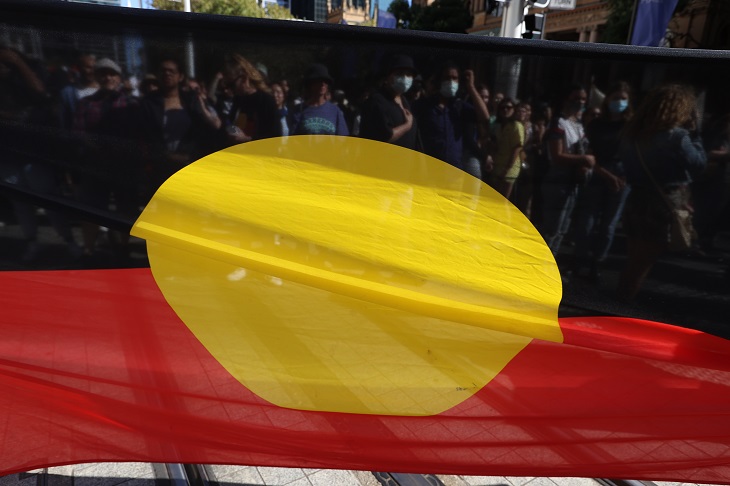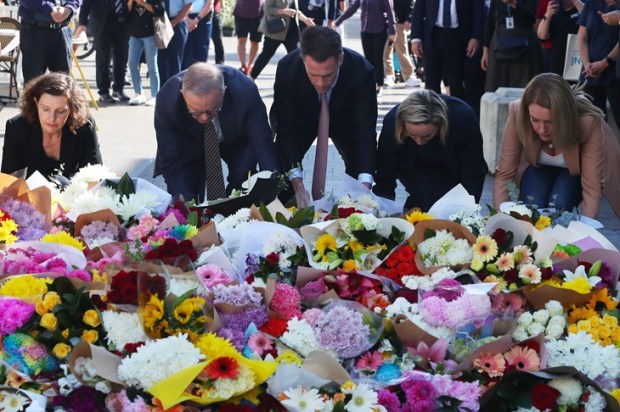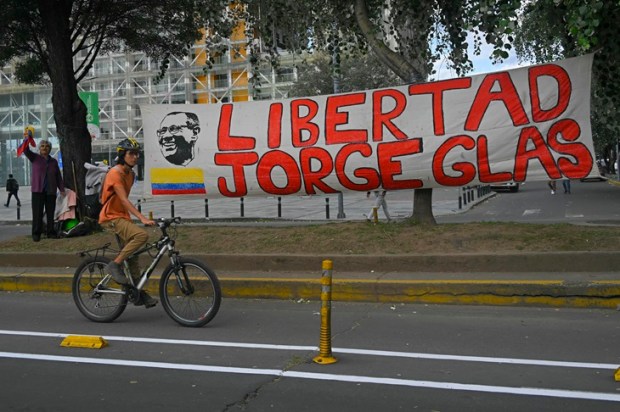Public discourse is under threat, and ironically, the progressive cause is to blame.
This was exemplified by the recent spat which arose between Senator Jacinta Price and author Peter FitzSimons over the proposed Indigenous Voice in Australia’s Federal Parliament. Things got ugly between the two, and allegations of bullying were returned with threats of defamation action.
The childish display – particularly exhibited by FitzSimons – reveals the regressive principles of the progressive cause, and the vital importance of allowing impassioned public debate to flourish.
Price has been a consistent outspoken critic of the proposed Indigenous Voice since 2019. Price contends that a Voice would imply Indigenous Australians were a ‘separate entity’ to other Australians, and that there is already sufficient Indigenous representation within Parliament. Furthermore, she raises the salient point that it would be nearly impossible for a single Voice to adequately represent the diverse and disparate communities contained within Australia. The senator ultimately contends that because the Voice will make no practical difference to the lives of Indigenous Australians, it should not be constitutionally enshrined.
Price’s contention in relation to the Voice can be applied more broadly to the way political debate ought to be conducted. Democratic debate requires a diverse range of individual viewpoints, not reduced to party lines or oversimplified by identity politics. To paraphrase Mill, it is only through diversity of opinion that there is ‘a chance of fair play to all sides of the truth’.
As the Chair of the Australian Republic Movement, FitzSimons has been a passionate advocate for the Voice. FitzSimons articulated his belief that Fred Cheney advocated ‘the best and most pithy case’ in favour of the Voice, contending that ‘Aboriginal people simply want to be consulted on things that affect Aboriginal people’. At face value, this seems fair. But how is attributing one feeling to a whole group of individuals appropriate, or indeed realistically achievable?
It’s not surprising that FitzSimons and Price clashed on the topic.
Price’s perspective that not all Indigenous people are a homogeneous group makes great sense on an intellectual level. Price conveyed that her identity extends beyond her Indigenous heritage. Indeed, no given group of people with shared cultural or social history share absolutely everything in common – and it is entirely presumptuous to think otherwise. FitzSimons appears to imagine that the Voice could speak on behalf of all Indigenous Australians – an approach which would conveniently silence whole swaths of unique opinions.
FitzSimons’ most egregious mistake, however, was his suggestion that Price was giving racists a voice. Labelling proponents of the opposing view as racist – or in this instance, empowering racists – is merely a distasteful evasion of the debate at hand.
He was not alone in this assumption, with UTS professor Nareen Young provocatively claiming that ‘the Voice is being undermined by Coalition rednecks and racists’. This is not in the least bit constructive. As Chris Kenny aptly conveyed, ‘Exponents of an Indigenous Voice to parliament do themselves no favours when they attempt to silence or condemn people with an alternative point of view.’
This commonly recurring theme in contentious discussions is a tool to both silence, as well as to discount a person’s perspective. I have witnessed anecdotally that this strategy stifles debate in University tutorials, it is in effect an ad hominem attack. In my experience, it is nearly always a cunning strategy employed by the progressive Left.
It’s an inconvenient reality for those who are charging opponents of the Voice with racism, that intolerance is not exclusive to one side of the proverbial fence. Price has alleged that as a result of championing the case against the Voice, she has been ‘called a “coconut”– [black on the outside, white on the inside] – and an “Uncle Tom”.’
Moreover, FitzSimons insinuated in his interview of Price that she was impeding the unified ‘progressive mood sweeping the land’. This generalisation by FitzSimons’ seems to be an attempt to undermine Price’s position by portraying her as out-of-touch and regressive. Price handled this implication with the rhetorical question: ‘How is having a bureaucracy based on race placed into the Constitution, not driving a wedge?’
Indeed, herein lies the irony: the Voice is not progressive in the least. Rather it is regressive in that it entrenches race into the Constitution. As Woke as our institutions have become, still these so-called progressive views are not representative of the silent majority of Australians.
Better outcomes for Indigenous Australians are certainly in the national interest, but a Voice is not the most effective mechanism to ensure they are achieved. It’s essential that Australia remains a country where we can engage in robust political discourse with one another, have a beer together, and put the matter to rest. This requires toleration from both sides of the political spectrum.
As J.S. Mill so eloquently articulated, ‘There is always hope when people are forced to listen to both sides.’
Mark Burgess is a contributor for Young Voices Australia.
Got something to add? Join the discussion and comment below.
Get 10 issues for just $10
Subscribe to The Spectator Australia today for the next 10 magazine issues, plus full online access, for just $10.


























Comments
Don't miss out
Join the conversation with other Spectator Australia readers. Subscribe to leave a comment.
SUBSCRIBEAlready a subscriber? Log in